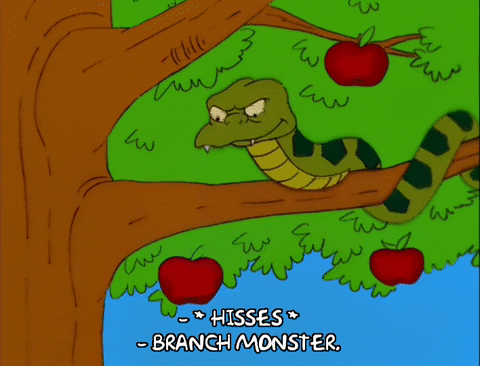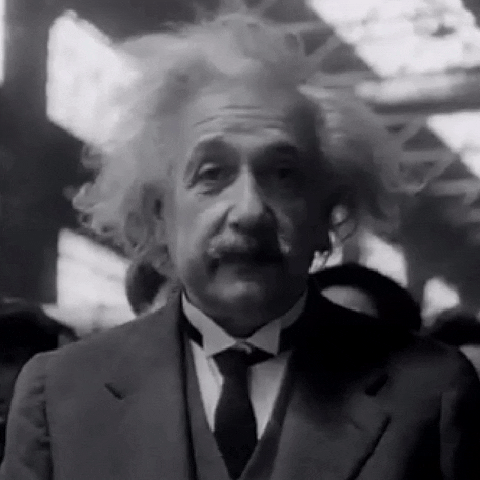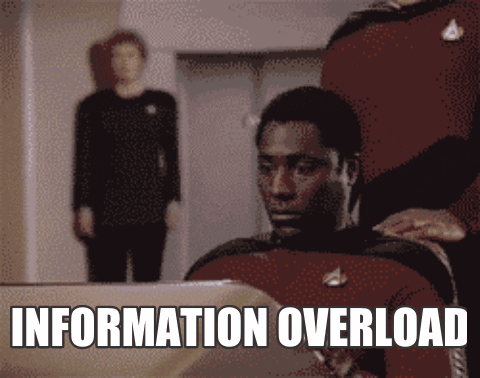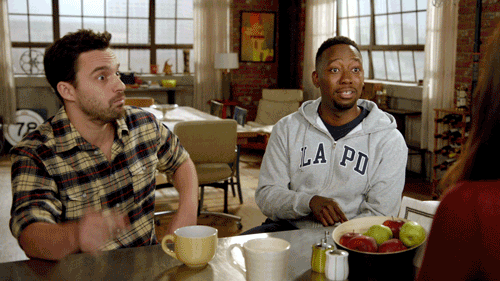MONTHLY MULLING💡
Charlie Munger On Stupidity, Lao Tzu On The Art Of Subtraction, And How To Live By Derek Sivers
Hi👋,
Tapan here.
Monthly Mulling is a newsletter sending the best ideas from the web to your inbox for free. High signal. Low noise.
If you were forwarded this email, you can subscribe here and join a community of 185+ readers.
Happy Sunday y’all!
I recently took a trip to Edinburgh. My first solo trip. And the “theme” of the trip was nostalgia. Here are the highlights in a Woody Allen-style video.
Why is it called Midnight in Edinburgh? Read the video description on YouTube!
Onwards🚀
💭MULLING
🤓 Charlie Munger - Don’t Be Stupid
A few newsletter issues ago, I wrote about how much I loved Richer, Wiser, Happier by William Green. Charlie Munger and Mohnish Pabrai's chapters were probably my favorites. One of the lessons in Charlie Munger’s chapter was - Don’t Be Stupid.
It is remarkable how much long-term advantage people like us [Charlie Munger] have gotten by trying to be consistently not stupid, instead of trying to be very intelligent.
Munger adopts one practice that all of us would be wise to clone: he strives consistently to reduce his capacity for “foolish thinking,” “idiotic behavior,” “unoriginal error,” and “standard stupidities.”
For example, at another shareholder meeting back in 2015, Munger ridiculed the popular delusion in academic circles that the market is so efficient that nobody can beat it.
“I knew it was bullshit,” he said, adding that he also “never believed there was a talking snake in the Garden of Eden. I had a gift for recognizing twaddle. I don’t have any wonderful insights that other people don’t have. I just have slightly more consistently than others avoided idiocy. Other people are trying to be smart. All I’m trying to be is non-idiotic. I find that all you have to do to get ahead in life is to be non-idiotic and live a long time. It’s harder to be non-idiotic than most people think.”
This habit of actively collecting examples of other people’s foolish behavior is an invaluable antidote to idiocy. In fact, it’s the second great anti-stupidity technique we should learn from Munger.
He once told Berkshire’s shareholders, “I like people admitting they were complete stupid horses’ asses. I know I’ll perform better if I rub my nose in my mistakes. This is a wonderful trick to learn.” Indeed, it’s the third trick we must learn from him in our campaign to constrain our own stupidity.
One way that Munger guards against irrationality is by emulating the “extreme objectivity” of scientists such as Charles Darwin, Albert Einstein, and Richard Feynman (My article on Richard Feynman).
When I ask what we can learn from them about how to think through a problem, Munger says, “They were all very hard on themselves.… They worked at reducing stupidity. They cared about thinking it through properly. They had long attention spans and they worked, worked, worked to avoid the stupidities.” Munger particularly admires their unflinching determination to seek out “disconfirming evidence” that might disprove even their most cherished beliefs. This mental habit, which takes many different forms, is our fifth defense against idiocy.
A few months ago, I posted on my Instagram account, the idea of inversion. When you’re stuck in a problem, always ask - what do I don’t want to happen?
For example, instead of asking - how can I be happy? Ask yourself, what will make me unhappy? Then avoid things that make you unhappy.
So, what Munger is essentially saying is, don’t try to be intelligent. Just avoid being stupid.
Do you use the inversion model?
➖ Lao Tzu - The Art Of Subtraction
Thousands of years earlier, the Taoist philosopher Lao-tzu wrote that the path to wisdom involves “subtracting” all unnecessary activities: “To attain knowledge, add things every day. To attain wisdom, subtract things every day.”
The art of subtraction is incalculably important, particularly in an age of information overload when our minds can so easily become scattered.
In my article on the Knowledge Pipeline, I explain how to deal with information overload. I talk about various filtering mechanisms that will help you subtract noise from the signal.
How do you deal with information overload? Leave a comment!
📚TREAT YO’ SHELVES
You can find my favorite books on my site and add me on GoodReads.
⭐ How To Live by Derek Sivers
About the book: One of the best books I have read this year. It’s a book compiling lessons on how to live. The lessons are contradictory and that’s the beauty of the book. Each chapter disagrees with the rest! Derek says, life is an orchestra and you are the composer and the conductor.

Important Lesson: I can’t compile the lessons in this newsletter or even in an article. There are 27 lessons and all of them are important. You gotta read it!
The book is only available on Derek’s site.
Favorite Quotes:
Silence is precious. Silence is the one thing that all religions have in common. Silence is the only way to hear quiet wisdom.
Most problems are not about the real present moment. They’re anxiety, worried that something bad might happen in the future. They’re trauma, remembering something bad in the past. But none of them are real. If you stop and look around the room, and ask yourself if you have any actual problems right now, the answer is probably no. Unless you’re in physical pain or danger, the problems were all in your head.
Beware of the feeling that someone completes you or will save you. You have wounds in your past. You have needs that were ignored. You seek someone to fill these gaps—someone that has traits you crave. But nobody will save you. You have to fill those gaps yourself. When you’re going through an unstable time in your life, you latch on to whatever makes you feel stable. Instant obsessive love is a bad sign that you’re thinking of someone as the solution. Projecting perfection onto someone is not love. You say “I love you” but really mean “I love this”.
Unless you are drops of liquid, one plus one never equals one. You must both be free and able to live without each other.
💪🏽 Can’t Hurt Me by David Goggins
About the book: If you haven’t heard about David Goggins or listened to one of his motivating podcast/interviews, here’s a primer.
Abused by his father when he was a kid and had to run away with his mom to live in poverty
Failed miserably in school owing to his color, childhood abuse, and no guidance
Joined the Air Force
Left Air Force owing to a sickle cell disease and worked in sanitization killing rodents for a living when was in his late teens
Lost 50kgs in 3 months to apply for NAVY SEAL and became a SEAL after two failed attempts at hell week (it’s as terrible as it sounds)
Graduated from Army Ranger School where he had to consistently jump from 50,000 height to qualify and become a top enlisted man
Became an Ultramarathoner, raced for Ultraman, and Marathon runner while doing a full-time job as a SEAL to raise money for Special Ops Foundation. Consistently came in the top 5 in all the races.
Found out that he had a hole in his heart!
He also broke the world record for most pull-ups in a 24-hour span
Yes, he achieved 1-7 above while having a hole in his heart. His book is an ode to mental toughness and what the human mind is capable of achieving.
Important Lesson: David Goggins Can’t Hurt Me is a hard slap on your face. If you think something is stopping you from achieving something, it’s you. Through his memoir, he shows that if you keep yourself accountable, you can strive to achieve anything. It’s like your best friend or coach holding you hard by your shoulder and yelling right to your face - you can do it! Definitely worth the read.
Favorite Quotes:
Human beings change through study, habit, and stories.
But when you have no confidence it becomes easy to value other people’s opinions, and I was valuing everyone’s opinion without considering the minds that generated them.
Our culture has become hooked on the quick fix, the life hack, efficiency. Everyone is on the hunt for that simple action algorithm that nets maximum profit with the least amount of effort. There’s no denying this attitude may get you some of the trappings of success, if you’re lucky, but it will not lead to a calloused mind or self-mastery. If you want to master the mind and remove your governor, you’ll have to become addicted to hard work. Because passion and obsession, even talent, are only useful tools if you have the work ethic to back them up.
🏛 A Guide To Stoicism by Pooran
About the book: This book is written by one of my acquaintances, Pooran. He has condensed knowledge from old Stoics like Seneca and Marcus Aurelius alongside insights from new books from Ryan Holiday. It’s a good starting point for anyone trying to understand the fundamentals of Stoicism. As a lot of you already know, I have been interested in this ancient philosophy for quite some time. This guide was a great refresher compiling information from some of the books I will never read. You can purchase the guide from Gumroad here.
Important Lessons: I personally enjoyed the 16 Stoic Practices more (it’s part of the guide). It talks about how do you develop a stoic attitude. Some of the practices are.
Practicing Silence
Visualizing Calamities
Not Amplifying
Favorite Quotes:
Fear is caused by ignorance and can be eliminated by a better grasp of the world - Seneca
🥘 Masala Lab by Krish Ashok
About the book: The book was recommended by Rohan Joshi in one of the podcast episodes. It explains the science behind Indian food. I don’t cook often but when I cook, I follow a set recipe. The book explains that following a recipe without understanding the science will only help you once. It won’t set the fundamentals. It’s definitely an interesting read if you cook Indian food!
Important Lessons: I learned a lot of things that I didn’t understand previously but did them anyway because of the recipe. It also helped me understand the concept of base curries that a lot of Indian restaurants use which speeds up the cooking process during the work-weeks.
Have you read any of the above books? What are your thoughts?
🎙PODCASTS
💰 COLD BREW MONEY
If you’re a listener, thank you so much! Can I ask you to share the podcast with one friend/family this weekend? It will really help us grow the podcast. We are now on YouTube too (if that’s your thing)! You can subscribe here.
🤓 #63 – Ten Personal Finance Rules That Everyone Should Know: We discuss 10 rules that every beginner should know about personal finance | Episode Page
🏡 #64 – Things You Need To Know Before Becoming A First Time Homeowner Ft. Jinesh Mehta: Planning to buy a house? We discuss lessons learned after owning a home for one year with a home-owner | Episode Page
🗝 #65 – Six Lessons On Investing From John Templeton And Fireside Chat On Inflation: We discuss six lessons learned from John Templeton on investing from the book Richer, Wiser, Happier | Episode Page
🧠 WHAT THE HAT!?
We launched season 3 of WTH!? and have a brilliant line-up of guests from the fields of leadership, management, entrepreneurship, and productivity.
🥇S3E1 - Neha Mishra Discusses Leadership Training, Goal Setting, Emotional Intelligence | Episode Page
Do you think any of your friends will like Monthly Mulling like you? Share it with them!😇
If you like Monthly Mulling, let me know! You can reach out to me on Instagram, Twitter, LinkedIn, or just reply to this email!










